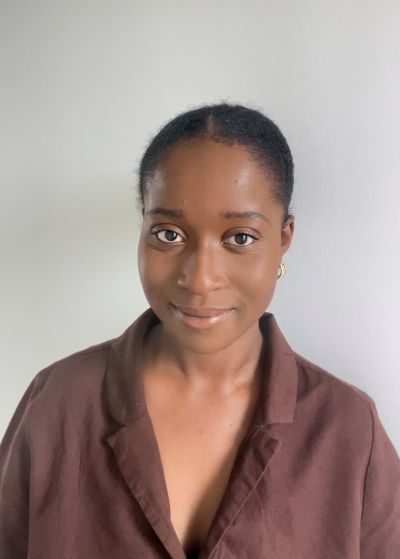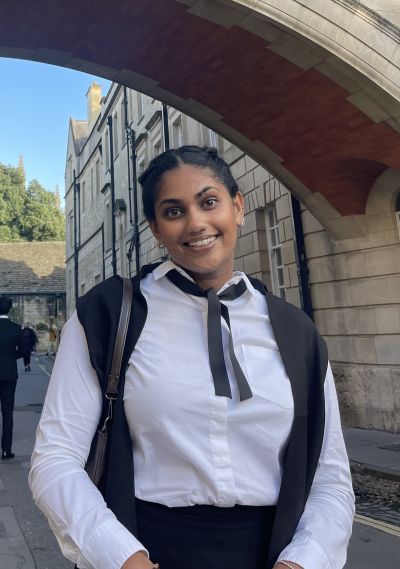Summer Newsletter 2025
Summer Newsletter 2025
June has seen the successful recruitment of two new interns for the David Miller Internship Programme and a new name and new logo for the Deborah Rogers Award.
To mark the 10th anniversary, the prize, formerly known as the Deborah Rogers Foundation Writers Award, has been renamed the Deborah Rogers Award. The renaming comes with an increased prize pot and a standalone logo.
'We look back with pride on the first ten years of the Writers Award, and the new careers launched. By renaming the award as the Deborah Rogers Award, we are reminded of the remarkable person who inspired us to create it.'
Gill Coleridge, Founder of the Deborah Rogers Foundation
The David Miller Internship Programme runs 15 September to 24 October 2025 – a busy six weeks of placements at literary agencies and publishers, as well as an invaluable visit to the Frankfurt Book Fair 2025. We are once again looking for help with accommodation at this time.
Looking ahead
The Deborah Rogers Award dates for the diary:
- 7 October - longlist published
- 22 October - shortlist published
- 4 November - Award Ceremony to announce the winner of the 2025 Deborah Rogers Award
- The David Miller Internship Programme runs 15 September to 24 October 2025 – a busy six weeks of placements at literary agencies and publishers, as well as an invaluable visit to the Frankfurt Book Fair 2025.
News
David Miller Internship Programme 2025
The search for this year’s interns began in April, in partnership with Creative Access. We had a record number of applicants (254) – an increase of over 33%. Applicants were sifted by Creative Access to produce a longlist of 15 for consideration by a panel of our trustees and a shortlist of six were interviewed at RCW Literary Agency in June. Thanks to Sam Coates from RCW Literary Agency for chairing the interview panel, and to panelists Prema Raj of Lutyens & Rubinstein, Margaret Halton of PEW Literary and trustee of the DRF and Valentia Afari of Hachette. Valentia provides a unique perspective since she was one of the first candidates to complete the DMIP back in 2022. Fortunately for us, she is on hand as a peer to peer mentor for the new recruits.
This year's successful interns begin the programme on 15 September, after an induction with Creative Access, who are on hand to support with career development throughout the process. Thank you to them and to all the companies who will be providing placements over the six-week period, namely Penguin Random House, Faber, Profile Books, David Higham, Greyhound Literary, ILA, PEW Literary and Eccles Fisher.
DMIP interns always brim with enthusiasm as the weeks progress, both for what they learn in the office and out of hours, by attending launches, events and mixers. The varied working environments at agencies and different publishing houses is one of the unique benefits of the DMIP. The guidance provided by all our partners helps these aspiring rights people to better understand where they might flourish in the industry and to gain the confidence to put themselves forward.
We are mindful that we ask for your help at the busiest time of the year - and remain extremely grateful!
Introducing our new interns
Danielle Olanipekun
'
Danielle is a recent Law graduate based in London. With hands on experience in bookselling and other creative industries, she brings a strong work ethic, a deep passion for literature and a love of baking.
Currently reading: Rejection by Tony Tulathimutte
Shreya Ganguli
'
Shreya has just completed an MSt at the University of Oxford in Global and Imperial History, and has an MA in History and Politics from the University of Edinburgh which included a year studying in Oslo. She was Humanities editor of her college magazine and has been a member of several book clubs.
Currently reading: The Women by Kristin Hannah
The Deborah Rogers Prize
After ten years of championing new writing, the Deborah Rogers Award has an enviable track record of picking future bestsellers and is now firmly established with aspiring writers, agents and publishers.
This newsletter provides us with an opportunity to celebrate the ongoing success of previous winners. It is not unusual for prize winners to take several years to come to publication and this is the case with Mathelinda Nabugodi’s The Trembling Hand: Reflections of a Black Woman in the Romantic Archive which will be published by Hamish Hamilton (Knopf in US) later this month. On winning the Award in 2021, Mathelinda commented:
'Winning the Deborah Rogers Award is such a wonderful validation of my work. I am so gratified to know that my attempt to stage a fresh and honest encounter with the Romantic archive has resonated with the judges and all the prize readers.'
Advance praise for The Trembling Hand
‘Ambitious and ingenious’ Colm Tóibín
‘This book has changed how I see Romanticism’ Professor Jane Stabler
‘Ferociously intelligent, lyrical and true’ Anahid Nersessian
The Deborah Rogers Foundation is proud to have played a role in bringing such a ground-breaking work of non-fiction to publication. You can pre-order a copy via Penguin’s website.
Pre-order here @penguin.co.uk
Also published this month is Guy Stagg’s new book, The World Within: Why Artists, Writers and Thinkers Retreat (Scribner). Guy’s debut was the critically acclaimed The Crossway, winner of the Edward Stanford Travel Memoir of the Year, and shortlisted for the Rathbones Folio Prize, Royal Society of Literature Ondaatje Prize and Somerset Maugham Award 2019. The Crossway was shortlisted for the inaugural Deborah Rogers Award in 2016.
You can purchase a copy via Simon and Schuster’s website here.
Buy The Crossway @ Simon & Schuster.co.uk
In November, the Deborah Rogers Award 2025 will be presented to another previously unpublished writer to enable them to complete their work. An increase in the prize pot means the winner receives £10,000, with £3,000 each for two shortlisted writers. Judges Erica Wagner (chair), Inua Ellams and Natalie Haynes will reveal their shortlist in October. Submissions are currently being assessed in a third round of reading. They might be written for children or adults, in the form of a novel, short stories or essays. Entries come from all over the British Commonwealth and Eire.
